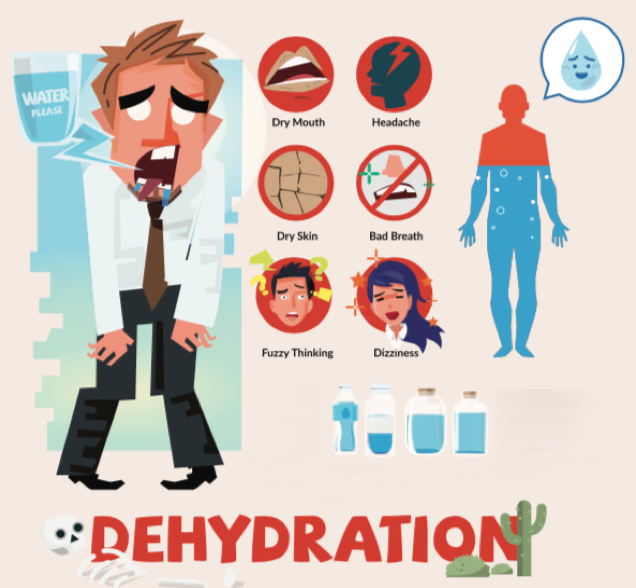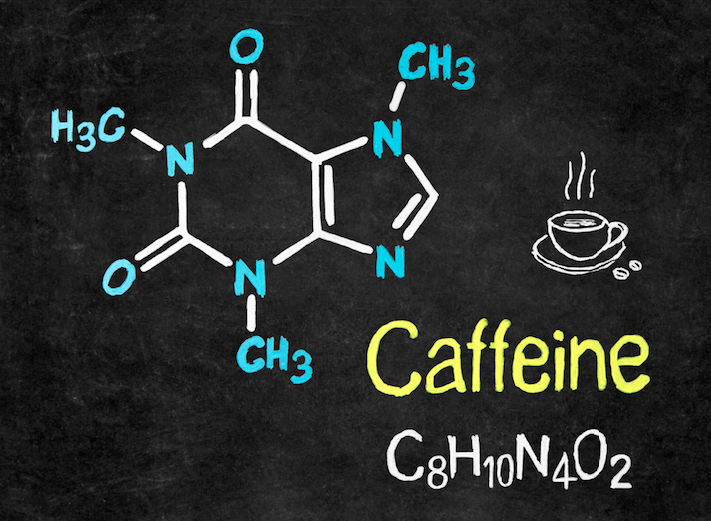Caffeine and Exercise Performance

New research suggests caffeine may be better than advertised, but not everyone gets the same benefits
Caffeine is the most-used drug on the planet today, largely for its pick-me-up qualities, so it’s no surprise bodybuilders and fitness fanatics consume it too. But there’s more to it than an energy burst: It enhances performance, liberates fat from fat cells to (hopefully) be burned as fuel, and is used as part of almost every weight-loss stack. Those are the headlines, at least; beyond that, there are some important details you should know.
Some of caffeine’s effects are more controversial: Does it cause dehydration? Is it healthy? Should some people avoid it? Does it have the same effects if obtained from coffee, tea, supplements, or chocolate? Let’s take a closer look.
Caffeine & Exercise Performance

Most people who spend any significant time in the gym or do competitive sports know that caffeine improves performance and aids fat loss. Initially, most of the research in this area was on endurance athletes—think long- and middle-distance runners. As of the last few years, a good amount of research has been published showing that caffeine increases work output during weight-training exercise. Therefore, most coaches in sports that require speed, endurance, or power recommend their athletes take caffeine within the hour or so before exercise. However, despite its apparent benefits, this may not be the best strategy for many of you!
You see, over the last few years, much research has focused on the genetic aspects of nutrition and supplements, and it turns out that (as with different diets and exercise routines) each person has an individual response to caffeine. Depending upon what version of the CYP1A2 gene you possess, caffeine may significantly improve your performance, have no effect, or even possibly decrease it. So, sweeping generalizations are no longer a good idea!
Currently, the research indicates that only people with the “fast” caffeine metabolizing “AA” genotype experience the exercise-related benefits of caffeine. I’m involved with a genetics company called FitnessGenes, and this is one of the things we focus on when we give recommendations to our customers. Moreover, it looks like the “slow” (non “AA”) caffeine metabolizers also seem to get increased blood pressure in response to caffeine intake, a very significant adverse side effect.
So when it comes to deciding whether to use caffeine for performance, you should either do a careful self-evaluation of how you react to caffeine to see if it seems to be helping or get a gene test for the CYP1A2 (specifically the rs762551 version of the CYP1A2 gene).
Fat-Metabolism Considerations

Caffeine is well-known to increase thermogenesis through its stimulatory effect on adrenaline and noradrenaline. In simple terms, this means that it encourages the body to burn off more calories as heat, which is an essential condition for weight loss. Studies tend to show a small increase in calorie burning (about 70 to 150 calories per day), which of course only modestly lowers the weight in people who consume caffeine compared to those who don’t—but remember, every little bit helps! But that benefit is compounded because it also improves exercise performance, which logically results in greater calorie burning. What’s more, caffeine stimulates fat breakdown and migration from the cell into the bloodstream, where it can be delivered to working muscles or cells in other organs to be used as fuel. So, caffeine won’t get you ripped on its own, but it’s one of many useful tools in doing so, and this is why it’s a key ingredient in many fat-burner products.
What About Dehydration?

You’ve probably heard that caffeine causes dehydration. This would obviously be a major concern for heavy exercisers because dehydration inhibits performance, can put stress on the kidneys, and, in severe cases, can cause illness or even death.
Many people just accept that hypothesis as a proven fact, and technically, caffeine probably does have a tiny effect on water balance. However, the effect of caffeine on dehydration is virtually irrelevant. In fact, several studies have looked closely at giving people various dosages of caffeine (up to 600 milligrams, which is a lot) and most show no evidence of significant water loss.
This is because the amount of extra water the body might lose is far less than the amount of liquid you typically get from a caffeinated beverage. So, caffeine could cause a small increase in water losses under some circumstances, but the liquid you drink with the caffeine will leave you far better hydrated than if you didn’t drink anything at all. So, in reality, caffeinated beverages hydrate you just about the same as any other beverage.
If you take caffeine pills, simply take one with a glass of water or other drink and the net effect will be that you won’t become dehydrated. Furthermore, many of the studies looked at kidney function and other safety measures, and caffeine didn’t appear to have any detrimental effect.
Caffeine on Health Measures

Highly caffeinated beverages such as coffee were once looked upon as an indulgence and thought of as being somewhat unhealthy, but there’s actually now a very large body of research showing that those who drink the most coffee have lower mortality (death rates), morbidity (illness, including lower risk of several cancers, diabetes, and Parkinson’s disease), and healthier livers, so, if anything, coffee may be a bit of a superfood! Caffeine on its own is associated with a lower incidence of diabetes and Parkinson’s, but it can increase blood pressure in some people. On balance, caffeine and especially coffee are normally considered safe and probably quite healthy.
Also don’t forget that additives to your coffee—especially sugar—can substantially boost calories, which may negate some of the benefits you’re seeking. In that regard, a supplement can be not only less expensive and more convenient but also more healthful. Just read the label for serving size and caffeine intake.
Should Some People Avoid Caffeine?

Earlier, I discussed the CYP1A2 (the rs762551) gene. Those folks who don’t have the “AA” version of this gene may not benefit from the health benefits of coffee and caffeine, and they’re more likely to get side effects such as feeling anxious and jittery. Also, those with high blood pressure or certain heart conditions (especially if they also have the non-AA gene type) should probably either drink less coffee or stick to decaf. In fact most of the research shows that decaf has the same benefits as coffee.
Coffee vs. Tea
So, for maximum health benefits, coffee (or even your pre-workout supplement) may be the best choice, but what about tea? Well, tea also has many healthful effects, but unfortunately, it’s not a very concentrated source of caffeine. While an 8-ounce brewed coffee contains nearly 100 milligrams of caffeine—be careful; some larger servings can be far higher—the humble cup of tea only has about 40. So although tea has a variety of benefits, you’d have to drink at least four to five cups to get as much caffeine as is used in research studies.
Putting It All Together

There used to be some question as to whether coffee improved exercise performance because in a few studies the pure caffeine group outperformed the coffee group, but since then, several studies using coffee have delivered the goods. So whether you drink coffee, take pure caffeine pills, or use a pre-workout supplement, you’re good to go! Just be sure to limit intake to 3 milligrams of caffeine per kilogram of body weight. If you weigh 175 pounds, divide that by 2.2 and multiply the result by 3, which would equal 240 milligrams of caffeine before exercise.
And if you exercise at night, caffeine intake can affect your sleep, so avoid taking it too late in the day.
All in all, caffeine improves performance, can increase metabolism and fat loss, and positively affect some measures of health for a substantial proportion of people who use it, but it’s not for everyone. Carefully evaluate which group you fall into. As long as you have normal blood pressure and a healthy heart (and aren’t pregnant), caffeine can be the boost you need.

